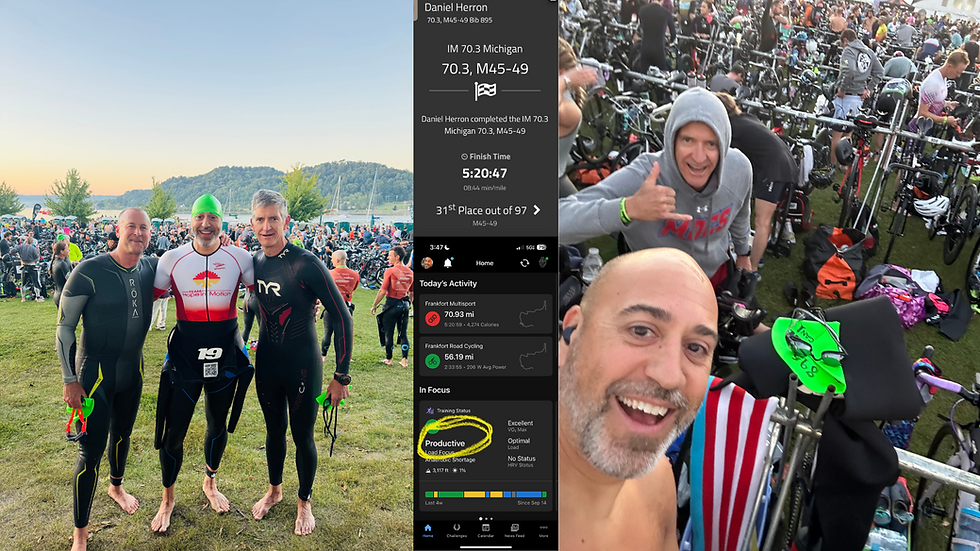Well-Differentiated Leadership
- danielherron

- May 12, 2025
- 3 min read
Friedman’s wisdom to regulate your own emotions and lead your organization into sustainable health

Many challenges we face as leaders come as the effect of others’ anxious decisions.
We can feel like we’re riding at the tail-end of a dragon.
What can you do today to switch that?
To be the cause rather than react to the effect?
To be the driver rather than the rider?
The most surprising best place to start?
Learn to regulate your own internal emotional processes and remain present while doing so.
I’m not talking about practicing a “Serenity Now” mantra (from that classic Seinfeld episode).
In his book, “Failure of Nerve”, Edwin Friedman labels this the most important thing a leader can do, calling the all-important discipline emotional regulation the “keys to the kingdom” of leadership.
According to Friedman, the essential role of a leader is to serve as the stabilizing force within a relational system. Whether in families, teams, or organizations, each collective operates within an “emotional field”—a dynamic environment much like a magnetic or gravitational field, shaped by the relational energy within it.
A leader’s level of self-differentiation significantly impacts this emotional atmosphere. Leaders who lack clarity in their identity and purpose tend to absorb and reflect the system’s chronic anxiety. In contrast, those who embody a clear, composed, and grounded presence can shift the emotional tone of the group, offering resilience instead of reactivity.
Becoming a “well-differentiated leader” takes time, but you can begin practicing today by seeing opportunities to serve as a well-differentiated non-anxious ambassador between anxious people & systems and the collective emotional field of the group you lead.
Growing in well-differentiated leadership is your MOST important role as the leader, and how you’ll serve your clients, employees, leaders, and investors most effectively. Your organization’s sustained revenue, productivity, KPIs, and your employees’ level of engagement all ultimately emerge from this.
Your most important calling as the leader is learning to regulate your own emotional processes to become a "well-differentiated leader".
Here are some starter steps you could take for yourself today when leading anxious people, in anxious circumstances, or in an anxious system:
Create space.
Breathe.
Observe the emotional lay of the land.
Interrogate your own reactive emotions.
Imagine the actions these unbridled emotions might lead to.
Ice Cube-it: Check yourself before you wreck yourself (and, the system).
Identify the feelings of deficiency compelling your reactivity.
Apply the truth of your calling, ability, role, authority, or virtue & purpose to your sense of deficiency.
Stabilize emotionally and re-engage in the way the system truly needs to be true to its vision.
Simple acronym, right? CBOIIIIAS.
Not everything can be perfectly-packaged, but learning these movements will help you lead without the unhealthy tendencies of: reactivity, creating an anxious herd, spreading blame, going for the quick fix, or wilting in order to please others. These are the easy ways out, and only contribute to toxicity.
To be the driver of a healthy organization and not merely a dragon rider, get into your own emotional maturity process. Embrace a growth mentality toward your own personal formation commitment, and see the impact of this investment compound in your entire organization over time. This is not a waste if your time, but the best use of your time to optimize the health of yourself as the leader and of your organization as the system you’ve been called to steward and serve.
The ROI will be worth it.
Daniel Herron is the founder of Strive Performance, an Indianapolis-based consulting and coaching firm specializing in leadership formation, organizational culture, team wellness, and whole-life integrated wellness coaching. To learn more about Strive Performance's assessment and coaching process, get in touch. We’d love to listen.




